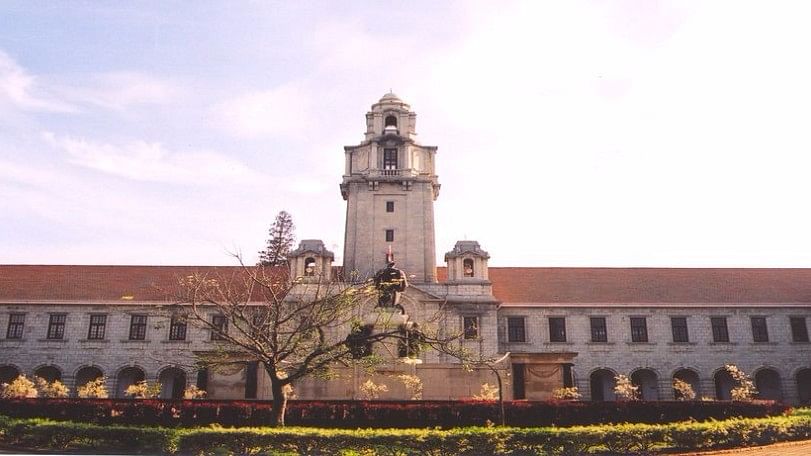Remarkable Surge: 91 Indian Universities Make Strides in World University Rankings 2024; IISc Bengaluru Takes Top Spot in India

Remarkable Surge: 91 Indian Universities Make Strides in World University Rankings 2024; IISc Bengaluru Takes Top Spot in India
In an unprecedented achievement for the Indian higher education sector, a staggering 91 universities from the country have made their mark in the prestigious World University Rankings for 2024, as unveiled by Times Higher Education (THE) magazine. This substantial leap from the 75 institutions featured last year showcases the growing prominence and global recognition of Indian academia.
The highlight of this year’s rankings is the resounding comeback of the Indian Institute of Science (IISc) in Bengaluru, which has secured the top position in India. IISc’s return to the global top 250 list after a hiatus since 2017 is indeed a testament to the institution’s enduring commitment to excellence in research and education.
Among the noteworthy Indian universities that have secured positions on the World University Rankings are Anna University, Jamia Millia Islamia, and Mahatma Gandhi University, among others. Their inclusion underscores the diverse and rich academic landscape in the country, offering a wide range of educational opportunities for students pursuing various fields of study.
However, it is essential to acknowledge that this year’s rankings come with a twist. Several of India’s premier institutions, including the prestigious Indian Institutes of Technology (IITs), chose to boycott the rankings. This decision has sparked conversations and debates within the Indian academic community, raising questions about the relevance and methodology of global university rankings.
The Rise of Indian Universities on the Global Stage
The surge in the number of Indian universities featured in the World University Rankings is a significant achievement for the country’s higher education sector. It reflects a consistent and dedicated effort by these institutions to enhance their academic standards, research capabilities, and global recognition.
One key factor contributing to this success is the increasing investment in research and development by both the government and private sector. India’s dedication to fostering innovation and research excellence has borne fruit, as universities now receive greater support for cutting-edge research projects and collaborations with international partners.

IISc Bengaluru’s Resurgence
The Indian Institute of Science (IISc) in Bengaluru’s return to the global top 250 list is a momentous occasion for the institution and the nation. Founded in 1909, IISc has a rich legacy of scientific research and education. Its multidisciplinary approach to learning and research has played a pivotal role in shaping India’s scientific landscape.
The institution’s reappearance in the rankings is a testament to its enduring commitment to excellence. IISc’s faculty and students have made groundbreaking contributions to various scientific disciplines, ranging from space research to nanotechnology. This recognition will undoubtedly boost the morale of the institution and encourage further endeavors in research and education.
Diverse Representation: Anna University, Jamia Millia Islamia, and Mahatma Gandhi University
Anna University, a renowned technical institution based in Chennai, has secured a notable position in the World University Rankings. Known for its emphasis on engineering and technology, Anna University’s presence on the global stage reaffirms its dedication to producing skilled engineers and technologists who contribute to India’s technological advancement.
Jamia Millia Islamia, located in the heart of New Delhi, is another institution that has made its presence felt in the rankings. With a history dating back to 1920, Jamia Millia Islamia has consistently promoted inclusivity and provided quality education. Its inclusion in the rankings is a testament to its commitment to nurturing talent from diverse backgrounds.
Mahatma Gandhi University, situated in the picturesque state of Kerala, is also among the Indian universities featured in the World University Rankings. Known for its focus on humanities and social sciences, the university’s inclusion highlights the significance of liberal arts education in India’s higher education landscape.

The Ongoing Debate: Top IITs Boycott the Rankings
While the success of these Indian universities in the global rankings is a cause for celebration, it is essential to address the elephant in the room—the decision of several top Indian Institutes of Technology (IITs) to boycott the rankings.
The IITs, considered the crown jewels of Indian higher education, have consistently featured among the top institutions in global rankings. However, this year, they chose to abstain from participating in the ranking process, citing concerns about the methodology and relevance of these rankings.
Their decision has sparked a broader conversation within the Indian academic community about the merits and shortcomings of global university rankings. Critics argue that such rankings often place disproportionate emphasis on factors like research output and internationalization, neglecting the unique challenges and strengths of Indian institutions.
Furthermore, some educators and policymakers believe that a heavy reliance on rankings can lead to a homogenized approach to higher education, where institutions prioritize certain metrics over holistic development and inclusivity.
In Defense of Global Rankings
On the other side of the debate, proponents of global university rankings argue that they provide valuable insights into the strengths and weaknesses of higher education institutions. These rankings can serve as a useful tool for students, parents, and policymakers to make informed decisions about education and research investments.
Moreover, participating in global rankings can motivate institutions to improve their research output, faculty quality, and international collaborations. It fosters healthy competition and encourages universities to benchmark themselves against their peers worldwide.

The Way Forward: Balancing Global Recognition and Local Relevance
As India’s higher education sector continues to evolve, finding a balance between global recognition and local relevance remains a crucial challenge. While achieving global recognition is essential to attract talent, funding, and international partnerships, it is equally important for universities to cater to the unique needs of their students and communities.
Indian institutions must prioritize innovation and research excellence while also ensuring that they remain inclusive and accessible. They should focus on producing graduates who are not only academically proficient but also socially conscious and equipped to address the country’s pressing challenges.
In conclusion, the remarkable surge of 91 Indian universities in the World University Rankings 2024 is a momentous occasion for the nation. It reflects India’s commitment to nurturing a diverse range of educational institutions and their dedication to academic excellence. However, the decision of top IITs to boycott the rankings highlights the ongoing debate about the role and relevance of global rankings in Indian higher education.
This development should serve as a catalyst for meaningful discussions within the academic community, policymakers, and stakeholders about the future direction of Indian higher education. It is imperative to strike a balance between seeking global recognition and ensuring that Indian universities continue to address the unique needs and aspirations of the nation’s diverse student population.
In the pursuit of higher education excellence, Indian universities should look beyond rankings and focus on fostering an environment that encourages innovation, critical thinking, and problem-solving skills. While rankings offer valuable insights, they should not be the sole driving force behind institutional policies and strategies. Instead, universities should prioritize curriculum reforms, research collaborations, and industry partnerships that equip students with practical skills and prepare them for the challenges of the 21st century.
It’s essential for Indian universities to embrace a multidisciplinary approach to education. The modern world demands individuals who can bridge the gap between various fields and tackle complex, interconnected issues. Encouraging interdisciplinary research and education can lead to groundbreaking discoveries and innovations that address not only local but also global challenges.
Moreover, universities should focus on expanding access to quality education, particularly in underserved regions of the country. While achieving recognition on a global scale is important, it’s equally crucial to ensure that education is accessible to all segments of society. By leveraging technology and adopting inclusive policies, Indian institutions can reach a broader demographic and make education a transformative force for the nation’s development.
In conclusion, the ascent of 91 Indian universities in the World University Rankings 2024 is a significant milestone, but it should be seen as a stepping stone towards a more comprehensive vision of higher education in India. By striking a balance between global recognition and local relevance, fostering interdisciplinary approaches, and expanding access to education, Indian universities can not only climb the rankings but also contribute meaningfully to the nation’s growth and development. This is a moment for reflection, reform, and renewed commitment to the noble pursuit of knowledge and excellence.






